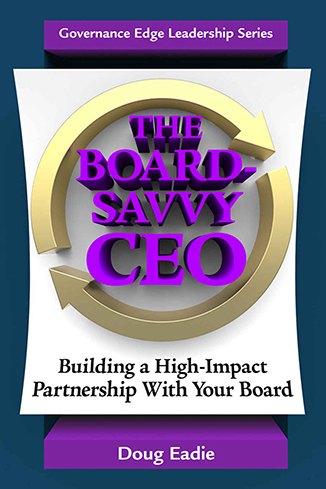The last article posted at this blog, “So Tell Us About Your Failures,” makes the point that all CEOs fail at one time or another, but truly extraordinary CEOs turn failures into very important learning opportunities. Increasingly, in recruiting CEOs, board members are consciously looking at candidates’ experiences in dealing with failure, as a sign of character. Of course, the more innovative and ambitious the CEO, the more failures she’s likely to experience and the more learning opportunities she can capitalize on!
Jeff Finkle, President & CEO of the International Economic Development Council, is an extraordinary CEO by any measure. On his watch, IEDC has grown rapidly, becoming an international economic development powerhouse in the years since Jeff spearheaded the merger of the Council for Urban Economic Development and the American Economic Development Council to form IEDC. Looking through resource material for a speech I’ll be making next week, I came across an article in the March 2009 Associations Now magazine, featuring my interview with Jeff, “A CEO’s Honor.” In this excerpt from the interview, Jeff talks about learning a valuable lesson from a pretty dramatic mistake:
Doug: Tell me about a mistake you’ve made as a CEO that’s taught you a valuable lesson.
Jeff: Well, this conversation has taken an ominous turn! Does this mean that you assume I make mistakes? Seriously, I really do believe that mistakes are a powerful learning tool, so long as they’re not lethal, and I’ve certainly made my share of them over the past 23 years. One comes to mind that was a valuable, if painful, teacher. The creation of IEDC by merging the Council for Urban Economic Development with the American Economic Development Council in 2001 was a monumental challenge, involving us in working through myriad operational issues, and I was still spending a good dollop of my time working through merger details a few years later when IEDC found itself with a pretty big budget shortfall, around $220,000 if I recall correctly, right before our annual conference. I was caught completely off guard, as was my board, which, as you might imagine, didn’t appreciate the surprise. We were able to right our ship, financially speaking, by making some pretty severe cuts in administrative expenses, but the process was quite traumatic, leaving lots of frayed nerves in its wake, and I definitely suffered embarrassment and took a real hit in terms of my credibility as CEO.
So why did it happen? In a nutshell, I took my eye off the ball, and, believe you me, it won’t happen again. Oh, we might have to work our way through some tough spots financially at one time or another in the future, but I assure you we won’t be surprised again. I pride myself on being a hands-on CEO who pays close attention to the bottom line, but in this instance I just let myself become distracted by other matters and trusted that all was well on the financial front. And, to be honest, there were warning signals that I ignored, most notably the fact that we couldn’t generate timely financial reports for several months before the crisis surfaced. I learned the lesson: Some things can be ignored, and at times should be in dealing with more important issues, but no CEO should ever take his or her eye off the financial ball – never, ever!






